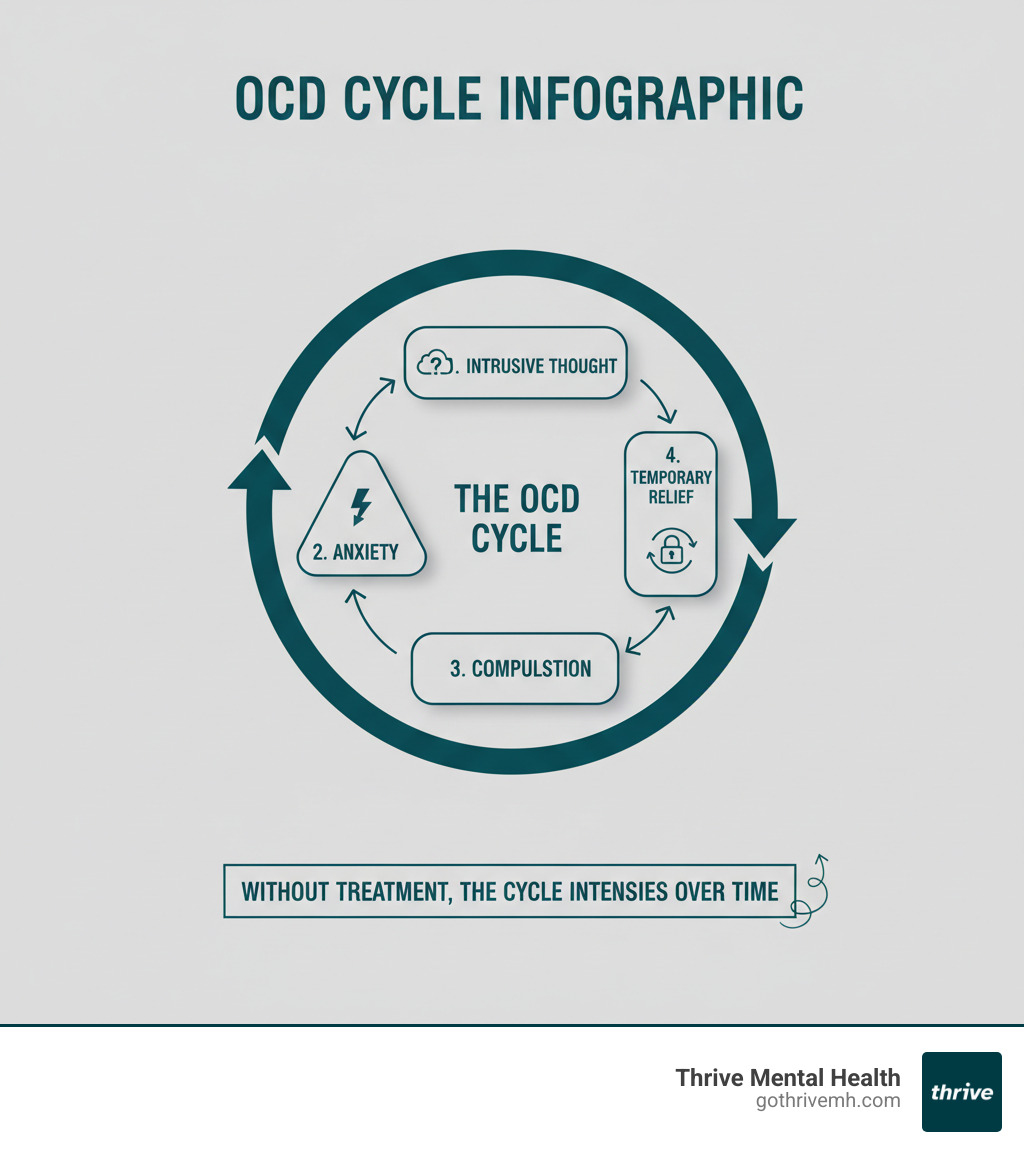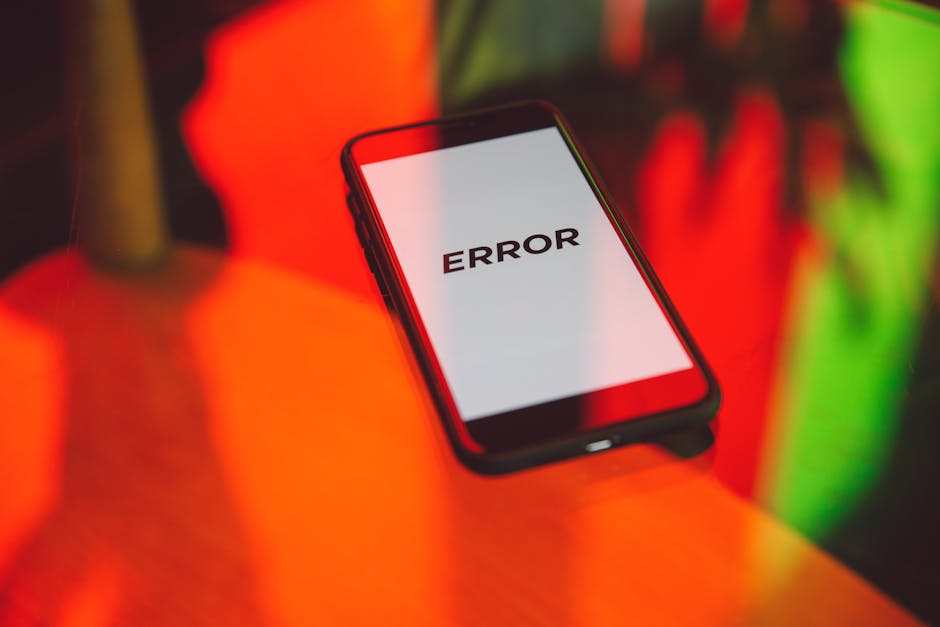Obsessed or Just Stressed? Take These OCD Tests to Find Out

OCD Quiz: 4 Ways to Uncover Stress
OCD Quiz: Are Obsessions Stealing 1–3 Hours/Day? Take the 3‑Minute Test for Clear Next Steps
If youre in crisis, call/text 988 right now. You are not alone.
An ocd quiz is a screening tool that asks about intrusive thoughts, repetitive behaviors, and the time they consume. These quizzes help you identify potential symptoms of Obsessive-Compulsive Disorder and decide if you should seek professional evaluation. While not diagnostic, validated tests like the OCI-R offer meaningful insight into whether your experiences align with OCD.
Quick Answer: What You’ll Find in an OCD Quiz
- Obsessions: Questions about unwanted thoughts, images, or urges that cause distress
- Compulsions: Questions about repetitive behaviors or mental acts you feel driven to perform
- Time & Impact: Assessment of how much these patterns interfere with daily life
- Severity Score: A general indication of symptom intensity
- Next Steps: Guidance on whether to consult a mental health professional
OCD affects 2-3% of the global population but is often misunderstood as just being “neat.” The reality is a relentless cycle: an intrusive thought triggers intense anxiety, which a compulsive ritual temporarily neutralizes. The relief is short-lived, and the cycle repeats.
Online OCD quizzes offer a private, accessible first step to understanding symptoms you might have dismissed as stress. They reduce stigma and help you recognize patterns. However, they have limitations and are not a substitute for a diagnosis from a trained clinician.
The most widely used screening tool is the Obsessive-Compulsive Inventory-Revised (OCI-R), an 18-item questionnaire measuring symptoms across six categories: washing, checking, ordering, obsessing, hoarding, and neutralizing. A shorter version, the OCI-4, is used for quick screening. Both are evidence-based and more reliable than generic quizzes.
Taking a quiz is often the first time someone acknowledges their symptoms, a powerful act of recognition. It’s the start of a journey toward professional evaluation and evidence-based treatment like Exposure and Response Prevention (ERP), the gold standard for OCD.
I’m Anna Green, LMHC, LPC, Chief Clinical Officer at Thrive Mental Health. Specializing in OCD, I’ve guided many individuals from the initial step of taking an ocd quiz toward comprehensive, evidence-based care that fits their lives.

Glossary for ocd quiz:
What is OCD and How Do Symptoms Differ from Habits?
Obsessive-Compulsive Disorder (OCD) is a serious mental health condition, not just a preference for tidiness. It traps individuals in an exhausting cycle of unwanted, intrusive thoughts (obsessions) and repetitive behaviors (compulsions) performed to reduce the intense anxiety these thoughts create. For a deeper look, explore the Meaning of OCD.
The key difference between OCD and habits or personality traits like perfectionism is the distress and impairment it causes. Someone with OCD doesn’t enjoy their rituals; they feel compelled to perform them to prevent intense anxiety or a feared outcome. The World Health Organization lists OCD as one of the top 10 most disabling conditions because of the hours it can steal from a person’s day.
OCD is often called the “doubting disease” due to the pathological doubt at its core. This constant uncertainty (Did I lock the door? Did I turn off the stove?) fuels endless checking rituals. The DSM-5 diagnostic criteria state that these symptoms must consume over an hour per day or cause significant distress and impairment in daily life. For more on identifying signs, read about OCD Symptoms.
Obsessions: More Than Just Worries
Obsessions are unwanted, intrusive, and recurring thoughts, images, or urges that cause significant distress. They feel alien to the person experiencing them and are nearly impossible to suppress, even when recognized as irrational. These aren’t typical daily worries; they are intense and often disturbing.
Compulsions: Beyond Being a ‘Neat Freak’
Compulsions are repetitive behaviors or mental acts performed in response to an obsession. The goal is to reduce anxiety or prevent a dreaded event, but the acts are often excessive or not realistically connected to the fear. Unlike someone who enjoys organizing, a person with OCD finds these rituals distressing and time-consuming, wishing they could stop. For a closer look, explore our page on Compulsions.
Here are some common obsessions and their corresponding compulsions:
- Fear of contamination: Leads to excessive washing or cleaning.
- Need for symmetry or order: Results in arranging or ordering things until they feel “just right.”
- Aggressive or sexual thoughts: Triggers mental rituals, praying, or seeking reassurance.
- Pathological doubt: Fuels repeated checking of locks, appliances, or tasks.
How an Online OCD Quiz Can Offer Initial Insights
Taking an ocd quiz is a meaningful first step for many who wonder if their thoughts and behaviors are more than just quirks. These screening tools ask targeted questions about your symptoms to provide initial insights into whether your experience aligns with OCD.
The real power of an ocd quiz is self-awareness. For many, it’s the first time they see their private struggles reflected in clinical terms, providing validation and a name for their experience. This “lightbulb moment” is often the catalyst that moves someone from silent suffering to seeking help. These tools also reduce stigma by offering a private way to explore symptoms. Early identification is key, as it leads to better long-term treatment outcomes.
Many reputable quizzes are based on evidence-based tools like the Obsessive-Compulsive Inventory-Revised (OCI-R). This tool was rigorously developed and validated to reliably measure OCD symptoms. A quiz based on this foundation is more meaningful than a generic personality test. However, it’s crucial to remember that an online quiz is a screening tool, not a diagnostic one. Only a qualified mental health professional can provide a diagnosis.
Clinically-Informed Tests: The OCI-R and OCI-4
The Obsessive-Compulsive Inventory-Revised (OCI-R) is a gold standard for OCD screening. This 18-item self-report questionnaire measures symptoms across six distinct subscales: washing, checking, ordering, obsessing, hoarding, and neutralizing. This gives a more detailed picture of your symptom profile, showing which dimensions of OCD are most prominent.
For a quicker assessment, researchers developed the OCI-4. This ultra-brief, four-item screener captures key aspects of washing, checking, ordering, and obsessing. It’s a rapid first-pass screen that can be completed in under a minute. If the OCI-4 suggests potential concerns, it can prompt you to take the next step, like a more detailed screening or contacting a professional.
The Limitations of a Free OCD Quiz
While an ocd quiz is a helpful starting point, understand its limitations.

An online quiz is not a substitute for professional diagnosis. A licensed provider must conduct a comprehensive evaluation, considering your full history and ruling out other conditions. The quality of online quizzes also varies wildly; some are unscientific and potentially misleading.
Self-diagnosis carries risks. You might incorrectly conclude you have OCD when another condition is present, or dismiss your symptoms if a generic quiz doesn’t capture your experience. Both scenarios can delay proper treatment. A quiz also can’t fully assess the functional impairment and distress central to an OCD diagnosis. If your results suggest OCD, use it as a signpost to seek professional guidance. Learning about Understanding the Different Types of Mental Health Therapy can help you prepare for that next step.
What to Do After Taking an OCD Test
After taking an ocd quiz, it’s normal to feel a mix of emotionsrelief, anxiety, or confusion. Practice self-empathy and remember that OCD is a neurobiological condition, not a character flaw. These patterns aren’t happening because you’re not trying hard enough. Acknowledging your symptoms by taking a quiz is a brave and significant first step toward clarity.
An ocd quiz is not a diagnosis but a signpost. It indicates that something needs attention, and the best way to address it is by bringing your results to a professional who can help you make sense of them.

If your results suggest you may have OCD, your next move should be to seek a professional evaluation. For comprehensive information on what comes next, explore How to Treat OCD.
Your Next Step: Seeking a Professional Evaluation
If an ocd quiz suggests potential symptoms, schedule an evaluation with a mental health professional. This involves structured clinical interviews where a clinician asks about the nature, frequency, and impact of your symptoms, using the DSM-5 diagnostic criteria as a guideline.
A formal diagnosis opens the door to evidence-based treatment. The gold standard for OCD is a specialized form of Cognitive Behavioral Therapy (CBT) called Exposure and Response Prevention (ERP). ERP involves gradually facing the thoughts or situations that trigger your obsessions while resisting the urge to perform compulsions. Over time, this helps your brain learn that you can tolerate anxiety without rituals.
Early treatment matters, and research shows that virtual therapy can be just as effective as in-person care for OCD. This means you can access expert help from home, on your schedule.
Finding Care in Florida and Using Your Insurance
At Thrive Mental Health, we make finding the right care as accessible as possible. We offer virtual and in-person intensive outpatient (IOP) and partial hospitalization (PHP) programs for adults and young professionals in Florida. Our evidence-based programs are designed to fit into your life.
We serve clients across Florida (including Miami, Orlando, and Tampa), and our virtual programs are available to those in other locations. We also work with major insurance providers like Cigna, Optum, and Florida Blue to make care affordable.
You can verify your insurance with us in minutes, with no obligation. This step clarifies your benefits and potential costs, allowing you to make an informed decision. Our goal is to provide effective care that’s also accessible. Learn more at our Virtual Intensive Outpatient Programs page.
Frequently Asked Questions about OCD and Online Tests
Can an online OCD quiz diagnose me?
No. Its a screening tool only. A licensed clinician must confirm diagnosis with a full evaluation.
How long does an OCD quiz take, and what score suggests risk?
Most take 23 minutes. On the OCI-R, scores around 21+ suggest clinically significant symptoms worth evaluating.
What should I do if my quiz suggests OCD?
Schedule a professional assessment and ask about ERP therapy. If available near you, consider stepping into care via IOP/PHP.
Is virtual OCD treatment effective?
Yes. Research shows virtual CBT/ERP can match in-person results when delivered by trained clinicians.
Whats the difference between OCD and OCPD?
OCD involves intrusive, distressing thoughts and compulsions (ego-dystonic). OCPD is rigid perfectionism seen as right by the person (ego-syntonic).
Suggested FAQ schema (add to your pages head or body):
{
"@context": "https://schema.org",
"@type": "FAQPage",
"mainEntity": [
{
"@type": "Question",
"name": "Can an online OCD quiz diagnose me?",
"acceptedAnswer": {"@type": "Answer", "text": "No. It’s a screening tool only. A licensed clinician must confirm diagnosis with a full evaluation."}
},
{
"@type": "Question",
"name": "How long does an OCD quiz take, and what score suggests risk?",
"acceptedAnswer": {"@type": "Answer", "text": "Most take 2–3 minutes. On the OCI-R, scores around 21+ suggest clinically significant symptoms worth evaluating."}
},
{
"@type": "Question",
"name": "What should I do if my quiz suggests OCD?",
"acceptedAnswer": {"@type": "Answer", "text": "Schedule a professional assessment and ask about ERP therapy. If available near you, consider stepping into care via IOP/PHP."}
},
{
"@type": "Question",
"name": "Is virtual OCD treatment effective?",
"acceptedAnswer": {"@type": "Answer", "text": "Yes. Research shows virtual CBT/ERP can match in-person results when delivered by trained clinicians."}
},
{
"@type": "Question",
"name": "What’s the difference between OCD and OCPD?",
"acceptedAnswer": {"@type": "Answer", "text": "OCD involves intrusive, distressing thoughts and compulsions (ego-dystonic). OCPD is rigid perfectionism seen as ‘right’ by the person (ego-syntonic)."}
}
]
}
Take Control of Your Thoughts and Actions
Taking an ocd quiz is a proactive step toward understanding your mind. While not a diagnosis, it can be the catalyst that moves you from confusion to clarity. OCD is a treatable condition, and the gold-standard treatment, Exposure and Response Prevention (ERP), has helped countless individuals break free from the cycle of obsessions and compulsions. ERP works by helping you face your fears without performing rituals, teaching your brain that anxiety will pass on its own.
At Thrive Mental Health, we specialize in this expert-led, evidence-based care. Our Virtual Intensive Outpatient Programs and hybrid options are designed for busy adults, with evening sessions available. We work with major insurance providers like Cigna, Optum, and Florida Blue to make care affordable.
Ready for support? Thrive offers virtual and hybrid IOP/PHP with evening options. Verify your insurance in 2 minutes (no obligation) Start benefits check or call 561-203-6085. If youre in crisis, call/text 988.